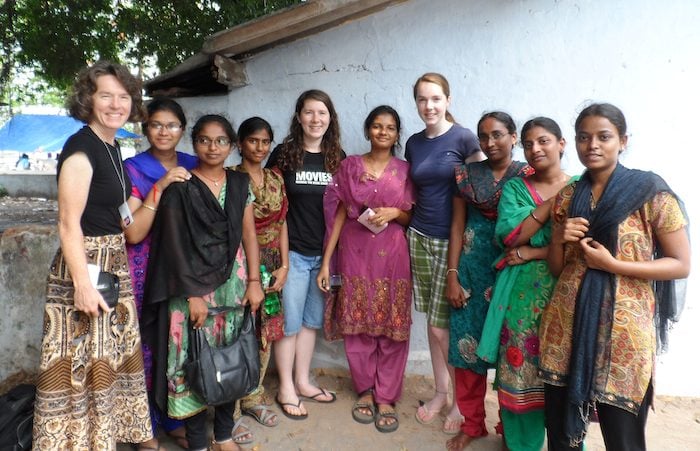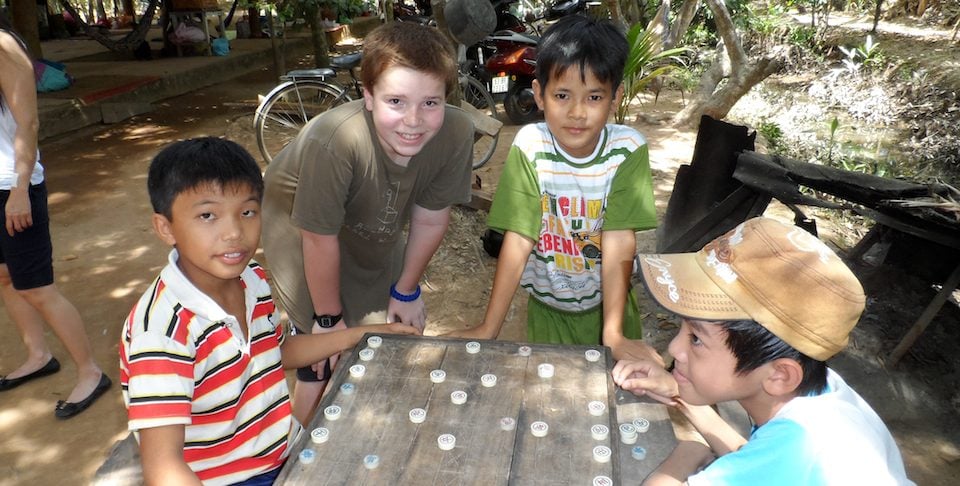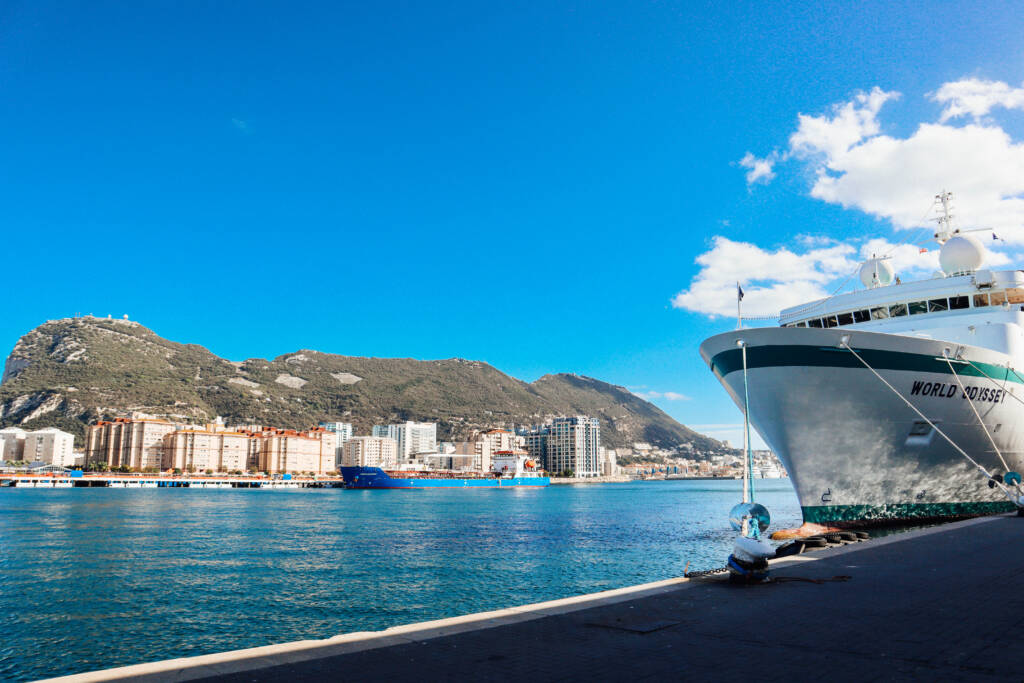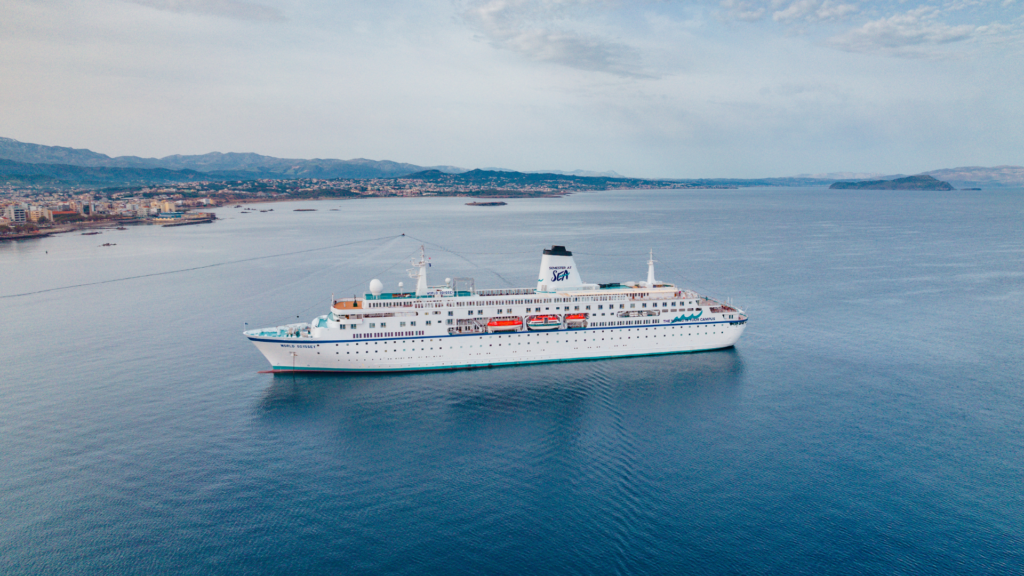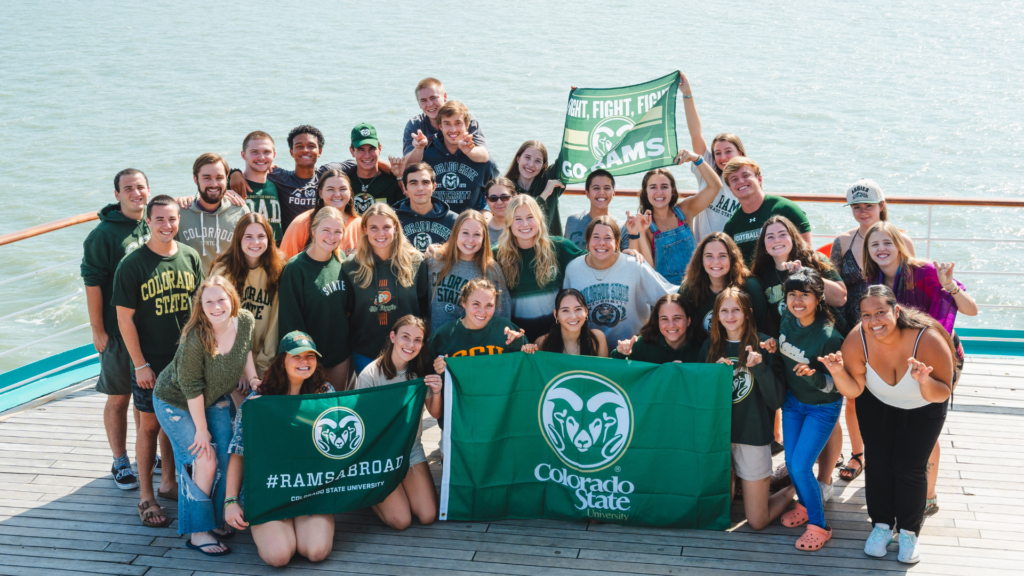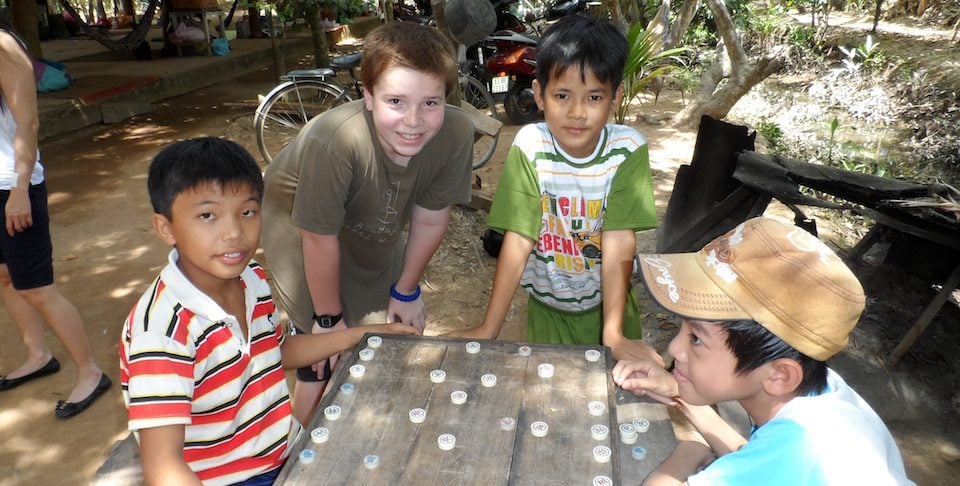
When my husband was asked to serve as a faculty member on the Spring 2013 voyage, my five kids were the first thing on my mind. What would Semester at Sea be like for them? Sailing around the world with our family of seven would either be the craziest thing we’ve ever done or the most incredible learning opportunity of our lives. (Or perhaps both.) I saw the concept of Semester at Sea as a beautiful blending of my passions for education and travel, and I had a gut feeling that we couldn’t say no.
Once we committed to joining the voyage, we approached teachers and administrators at our children’s schools to find out what our education options were. Some were genuinely excited for us and wanted to come along as tutors or nannies, while others were more skeptical about our ability to educate our children on a ship with so many distraction and disruptions. How could we possibly do science experiments and history projects without the resources we enjoy at home? I could read in a few of their faces that they thought this was going to be an extended vacation rather than an enriching educational experience.
I spent months gathering curriculum materials that would be challenging enough to keep my children on pace with their peers in every academic subject. Three months into the voyage I have discovered that our education is going far beyond textbooks and worksheets. It is penetrating deep into our hearts and expanding our minds in ways I could never have imagined. As many teachers know, the way to get information to stick is to make learning hands-on and applicable to real life situations. Here are a few examples of how we have been able to do this on Semester at Sea.
Our son Sean did a report on the Vietnam War after spending a week in Vietnam. He crawled through the Cu Chi tunnels that were dug in the 1960s to hide the Viet Cong from American soldiers. He spent a day with children at an orphanage run by Buddhist monks and played soccer with Vietnamese boys his age. He attended a worship service with local Vietnamese who shared his faith. And once back on the ship he interviewed a Vietnam War veteran. It is by far the best history report he has ever written.
Our son Adam studied a chapter in his science textbook that focused on the ocean while riding through the Pacific, Indian, and Atlantic Oceans. He read about marine life and then witnessed it by getting close to dolphins, seals, and penguins. He studied waterways by doing a white water rafting trip where he came in contact with giant water lizards, exotic birds and even leeches (not his favorite). His field trips studying coral reefs, tide pools, and atolls included Sri Lanka, Mauritius, and Cape Town.
Our three oldest children Jessica, Nathan, and Rachel are taking business and economics classes on the ship and then apply their learning by exploring the floating fruit market on the Mekong River, the shopping district in Tokyo, and going behind the scenes at Hong Kong Disneyland. What better way to learn about a market economy than by watching tuk-tuk drivers vie for patronage in India or haggling for souvenirs in the Ben Than market in Ho Chi Minh City? For them, entrepreneurship is understood by watching men, women, and children sell everything from sun glasses to swimming pools along the roadside and trade is fascinating whether the currency is rupees, yen, or dong.
I, who am a self-professed religious fanatic, have been able to talk with, walk with, and worship with people who come from all the major religions on the planet. I learned about Buddhism by doing a religious pilgrimage up Adam’s peak to see the footprint of Buddha with thousands of Sri Lankans at two o’clock in the morning. I have an increased understanding of religious healers because I spent the afternoon with a Shaman in Burma. I got a crash course in the Islamic faith from a Muslim in Cape Town who faced both religious and racial discrimination during apartheid. On the ship I have attended the Seder feast with my Jewish friends, Palm Sunday conducted by Archbishop Desmond Tutu, a
Chinese New Year party with a group of Buddhist students, and a nondenominational Easter celebration that included several sects of Christianity.
It is a global education with a capital G. However, it isn’t the tangible things we have learned that are the most impressive. As a mother, it is the intangibles that I’m most interested in. One of the main reasons I travel is to teach my children humility, gratitude, and service. I believe these qualities lead to happiness and ultimately I want my children to be happy. We have been humbled by the generosity of the Burmese as they shared food and drink with us when they had very little for themselves. We felt tremendous gratitude for a warm shower and clean beds when we returned from two nights sleeping on buses getting back and forth from Bagan. Service was extended when we donated clothing and other goods to a primary school in South Africa and then held HIV babies in a children’s hospital.
So what are we learning on Semester at Sea? We are learning Ubuntu (a concept taught to us by our new friend, Archbishop Tutu, that means “I am what I am because of who we all are”), we are learning that what unites us is more powerful than what divides us, and we are learning that love will find a way.
